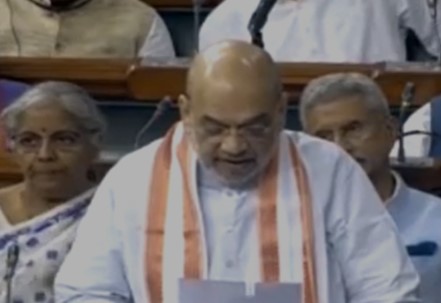New Delhi, August 12, 2023: In a landmark development, the government has unveiled a comprehensive reformation of archaic colonial criminal justice laws, aiming to ensure stringent penalties for heinous crimes such as mob lynching and the rape of minors. Additionally, the proposed amendments introduce a novel offense of “endangering unity,” replacing the outdated charge of sedition.
Amit Shah Introduces 3 Pivotal Criminal Justice Bills
Union Home Minister Amit Shah introduced three pivotal Criminal Justice Laws bills that herald this transformative legal evolution. The venerable Indian Penal Code of 1860 is slated to be succeeded by the progressive Bharatiya Nyaya Sanhita. Furthermore, the Code of Criminal Procedure will be superseded by the forward-looking Bharatiya Nagarik Suraksha Sanhita, while the Indian Evidence Act will be succeeded by the innovative Bharatiya Sakshya.
This momentous stride towards legal modernization is now subject to review by a Standing Committee, which will meticulously assess the implications of these ground-breaking proposals.
Incorporating the pressing need for addressing acts of secession, armed rebellion, subversive activities, separatist tendencies, and threats to the sovereignty, unity, and integrity of India, the revised laws herald a new era of legislative responsiveness.
In a paradigm shift, the outdated sedition law has been repealed and substituted with Section 150, which specifically targets acts that jeopardize India’s sovereignty, unity, and integrity.
According to Section 150, “Whoever, purposely or knowingly, by words, either spoken or written, or by signs, or by visible representation, or by electronic communication or by use of financial means, or otherwise, excites or attempts to excite, secession or armed rebellion or subversive activities, or encourages feelings of separatist activities or endangers sovereignty or unity and integrity of India; or indulges in or commits any such act shall be punished with imprisonment for life or with imprisonment which may extend to seven years and shall also be liable to fine.”
Elucidating the context, the explanation affirms that “Comments expressing disapprobation of the measures, or administrative or other action of the Government with a view to obtain their alteration by lawful means without exciting or attempting to excite the activities referred to in this section.”
This pioneering criminal justice laws bill prioritizes the establishment of a robust legal framework to combat crimes against women and children, homicides, and offenses against the state. An unprecedented inclusion is the introduction of community service as a punitive measure for minor infractions.
Moreover, the proposed legislation in Criminal Justice Law bill introduces the groundbreaking concept of trying individuals in absentia for evading arrest.
The proposed amendments also stipulate that law enforcement agencies must provide updates on First Information Reports (FIRs) within a span of 90 days. Additionally, the adoption of electronic FIRs (E-FIRs) further streamlines the process by enabling lodging of complaints from any location.
The seismic shifts proposed in this criminal justice laws reformation are poised to address contemporary challenges with a keen eye on justice, equity, and the unity of the nation. As these crucial proposals stand for scrutiny, they represent a pivotal step forward in harmonizing the legal framework with the dynamic socio-political landscape of modern India.


